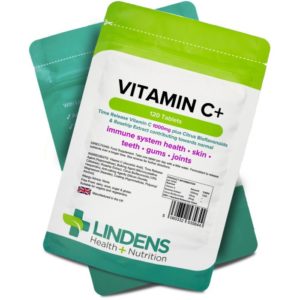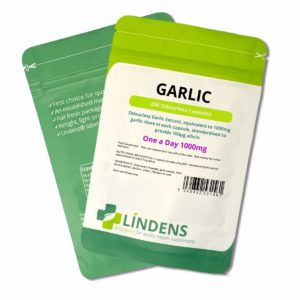Most of us suffer from the common cold during the seasonal changes. There are about 200 different viruses that cause common cold and due to such large number of viruses, the development of effective vaccines against the common cold has remained unresolved.
The common cold doesn’t cause any serious problems except mild fever and running noses, and we automatically recover in two or three days. On the other hand, influenza can make you sick for many days. This is the reason why common cold is taken casually while influenza or flu makes us shiver with fear. Although, there are three types of influenza virus (classified as A, B and C), their DNA keeps on changing and therefore, there can be many known or unknown strains.
What Is Influenza?
Influenza or flu is a viral infection of the respiratory system. The influenza is highly contagious and the virus can enter your body through the eyes, nose or mouth when you are exposed to contaminated environment. Once the virus is inside your body, it quickly multiplies and infects your lungs. The infection of the airways causes symptoms like a sore throat, persistent cough, fever, and running nose. Your body’s immune system responds to viral infection, and produces antibodies to fight the infection. The feeling of uneasiness, headache, fever, muscle ache and weakness is caused by the reaction of your immune system.
What Is a Cold?
A cold is also a viral infection, but the causing virus is not known to undergo any kinds of mutation in its DNA. The body’s immune system easily handles this infection in two or three days. Cold is the most common health issue, particularly in growing kids. They can catch about 10 colds in a year. The large number of causing viruses is the main reason of its persistence.
What Causes the Flu and a Cold?
Both common cold and influenza are viral infections and despite undergoing research, effective vaccines or medicines are still unavailable. When you are infected, your doctor may recommend certain medications to relieve you from the symptoms of these viral infections. In most of the cases, these medications help you feel better while your immune system automatically handles the invading virus. The influenza virus or flu has been categorized as type A, type B and type C. Type A influenza virus is the most common agent, and it has been observed that this type of flu virus has caused most of the serious influenza epidemics.
How Are Flu and Colds Spread?
Both common cold and flu are highly contagious infections. The causing viruses may be different, but they all spread through the air. When an infected person breathes out, coughs or sneezes, tiny droplets are diffused in the air and infect other people when they inhale or come in contact with infected objects. On an average, one sneeze can diffuse more than 100,000 virus cells and infect people up to 30 feet.
What Are the Symptoms of Influenza and a Cold?
The symptoms of common cold and influenza are almost similar and this is the reason why some people get the impression that they have recovered from a flu. However, if you have really suffered from an influenza virus, you will instantly understand the difference. The symptoms of influenza or the flu are extremely severe and you may not be able to perform your routine activities. If you can manage your everyday activities, it is more likely that you are having a bad cold. Unlike the flu symptoms that appear quickly, the symptoms of common cold come gradually.
Symptoms of a cold include:
- Runny nose.
- Sneezing.
- Sore throat.
- Cough.
- Slight headache.
- Moderate temperature.
Symptoms of flu include:
- Blocked or runny nose
- Sore throat
- Dry cough
- Muscles Ache.
- High temperature.
- A shivery feeling.
- Severe Headaches.
- Loss of appetite.
- Fatigue and weakness.
Flu Immunisation
When influenza infection is spreading quickly and large number of people catch flu at the same time, the situation is termed as an epidemic. Due to the highly contagious nature of influenza viruses, it’s not possible to predict any flu epidemics. When an epidemic occurs, it can take several weeks to control the infection even after isolating the infected people. Unfortunately, influenza viruses can undergo a mutation in its DNA and when new strains of flu virus start spreading, our immune system has no clues to prevent or control such infections. Due to the changing DNA, vaccinations are available for only certain strains of influenza virus. Currently available vaccination against Influenza virus is recommended for high-risk people such as:
- Diabetics
- People with heart disease
- People suffering from H.I.V. or Cancer
- People with compromised immunity
- People with chronic asthma or other chest problems
- People with kidney problems
- Kids and senior citizens
- People living in endemic areas
If you are healthy, there is no need to be vaccinated against influenza. However, if you belong to these high-risk groups, it’s ideal to be vaccinated during the late September and early November. This vaccination will make you ready for the winter when most of the flu epidemics occur.
How Is Flu Diagnosed?
If the patient lives in an influenza epidemic area, they are more likely to suffer from a flu. The diagnosis depends on the severity of the signs and symptoms of colds and flu.
What Treatment Is There for Colds and the Flu?
Extremely severe symptoms of a flu can produce a psychological shock, making you believe that you are about to die, but most people recover within a few days. Some may require medicines while others don’t even need to see their doctors.
Common cold and flu is a viral infection and so, use of antibiotics can prevent only secondary bacterial infections. You can recover without using any antibiotics. Make sure to:
- Stay home and rest
- Keep your room warm and ventilated
- Avoid smoking
- Take lots of fluids (non-alcoholic)
- Eat fruits (rich in vitamin C) and carbohydrate sources to maintain your energy levels
- Take paracetamol to manage fever and uneasiness
- Gargle with salty water and suck throat lozenges. It will help you manage your sore throat.
If you are buying any ‘over the counter’ medicine or preparation, make sure that they are suitable for you. You can ask the opinion of your pharmacist or review the ingredients of such remedies. Don’t resume your routine activities unless you have fully recovered from a flu.
When Do I Need to See a Doctor?
In most of the cases, you don’t need any prescriptions for recovering from a flu, but under the following circumstances, consulting your doctor is highly advisable:
- Persistent high fever, even after a few days
- Chest pain and breathlessness
- Rash
- Stiff neck
- Severe earache
- Extremely severe symptoms
- Psychological shock
- Belong to the high – risk group
In case of infants and toddlers, you have to be extra careful and consult your paediatrician because babies and growing kids may not be able to tell their symptoms or explain their uneasiness.
Are There Any Complications with a Cold or Flu?
There can be no complication from the common cold. The symptoms of common cold automatically persist within two or three days. If the symptoms persist for more than 3 days, it can be a flu, typhoid or other conditions that cause the common cold like symptoms.
Influenza can make you sick for longer durations and kids may develop secondary infections like pneumonia. So, kids, elderly or people with compromised immunity may need some kinds of antibiotics to prevent secondary infection and related complications from a flu.
Understanding the Seasonal Pattern
You’ve probably noticed that flu and cold cases spike during winter months, but do you know why? It’s not just about the chilly weather making you shiver. When temperatures drop, we tend to huddle indoors with windows sealed tight – creating the perfect breeding ground for viruses to hop from person to person. Think of it like a game of viral tag in a crowded room!
The cold, dry winter air also wreaks havoc on our respiratory system’s natural defenses. Those tiny hair-like structures in your nose (called cilia) that usually catch and sweep away viruses become sluggish in cold weather. Plus, many viruses actually thrive in lower temperatures. They’re like tiny winter sports enthusiasts, performing their best when it’s cold!
This knowledge isn’t just interesting trivia – it’s your secret weapon for timing your prevention strategies just right. When autumn leaves start falling, that’s your cue to amp up your immune-boosting routine.
What Can I Do to Prevent Getting a Cold or Flu?
Healthy lifestyle can boost your immunity and make you resistant to many common diseases. Taking vitamin c and zinc rich fruits, and use of cod liver oil will strengthen your immune system, but eating healthy, exercising properly and taking a good night’s sleep are the key to your good health.
If you are living nearby any flu endemic areas, you can prevent the infection to some extent by staying at home and avoiding crowded places. When you catch a cold or flu, stay home and encourage other infected people to stay isolated so that the influenza infection doesn’t escalate.
To boost your immunity, make sure your diet includes plenty of fruits and vegetables, especially citrus fruits, red bell peppers, broccoli and spinach which are high in vitamin C. Garlic, shellfish and nuts contain zinc and vitamin B6 which support immune function. Chicken soup and warming spices like turmeric and ginger can also help you fight infection. Stay hydrated and avoid smoking or drinking too much alcohol which can depress your immune system.
Getting enough good quality sleep, at least 7-8 hours per night, gives your body time to rest and repair. Chronic lack of sleep raises stress hormones which hamper immune cells. Manage your stress through yoga, meditation or talking therapy. Prolonged periods of high stress can make you susceptible to bugs.
Take regular moderate exercise which gets your heart pumping and makes you breathe harder. This circulates immune cells in your blood. Walk, cycle or do a home workout 3-5 times a week. Even light exercise like stretching or a daily walk can be beneficial. But don’t overdo it as exhaustive exercise can weaken immunity temporarily.
Support your gut health by including prebiotic and probiotic foods in your meals. These nourish healthy gut bacteria which influence 70% of your immune system. Examples are live yogurt, kefir, kimchi, sauerkraut, onions, garlic, bananas and oats. Pop some probiotic supplements too if you like.
Get an annual flu shot to help protect yourself, especially if you are elderly or have a long-term health condition. This year’s vaccine covers the circulating influenza virus strains. The flu virus also mutates very fast, so get vaccinated every year.
Wash your hands properly and regularly with soap and water. Lather for 20 seconds ensuring you clean between fingers, nails, wrists and the back of hands. Use alcohol hand gel when soap isn’t available. Avoid touching your eyes, nose and mouth with unwashed hands. Disinfect frequently touched surfaces like phones, keyboards and door handles.
Be aware of people around you coughing and sneezing. Keep your distance and ask them to cover their nose and mouth. Carry tissues so you can catch your coughs and sneezes then bin the tissue immediately before washing your hands. This stops the spread of droplets carrying cold and flu viruses.
Consider taking supplements like vitamin C, D, zinc, garlic and echinacea many months before and during the flu season. High dose vitamin C supplements can slightly shorten colds. But evidence on echinacea is mixed, so ask your pharmacist. Don’t take mega-doses of any supplements without medical advice.
Draw up your own “protect me” plan listing practical steps to avoid infection this winter. Share it with your family, colleagues and friends to spread the word. Think about vulnerable people you know who would appreciate some extra support. Even simple gestures like shopping for them or phoning for a chat can help isolation.
If flu is circulating in your area, be vigilant about symptoms. Call your doctor if you or vulnerable loved ones develop fever, chills, body aches, sore throat, runny nose, congestion or fatigue. Antiviral medication like Tamiflu can ease symptoms and reduce complications if taken very early in illness. Stay home, rest and drink plenty of fluids.
Prevention is always better than cure, so do make lifestyle changes now to stay healthy this winter season. Building resilience prepares your body to fight infection. Protect others too by getting vaccinated against influenza and pneumonia. With common sense precautions, we can get through the next few months without catching a nasty bug!
Photo Credit: Mike Mozart / Flickr CC
Zoom Health is a leading UK supplier of Home Health Tests and Earplugs







